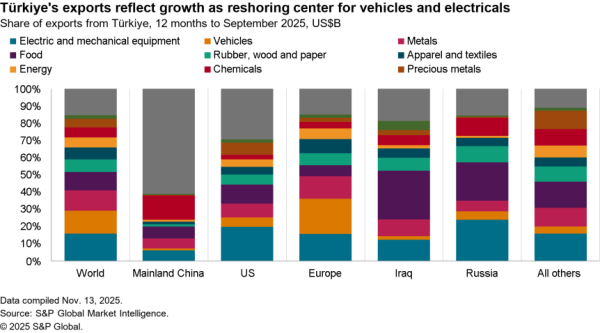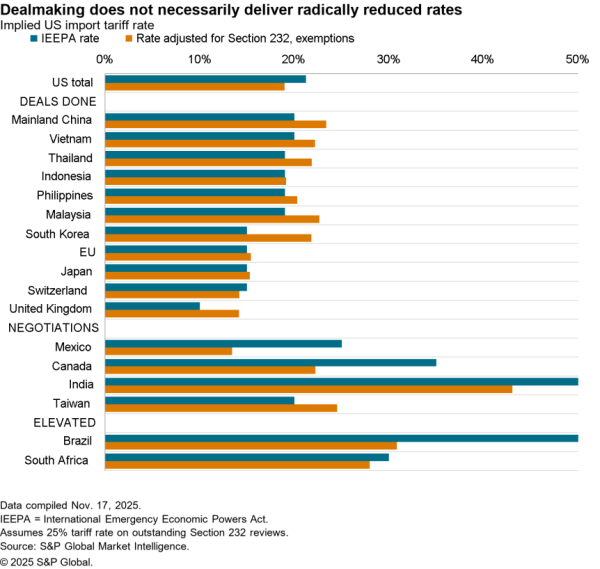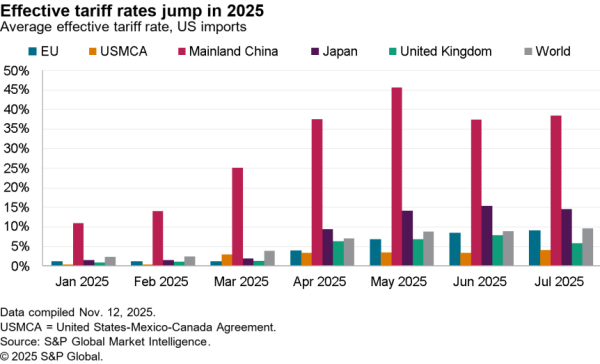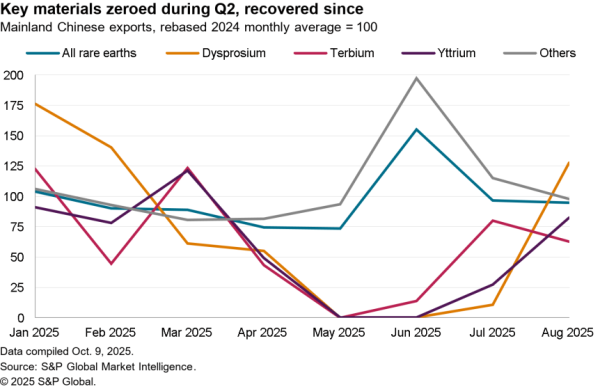Freight forwarder Flexport will no longer ship certain medical supplies – including personal protective equipment – “unless the customer can demonstrate which hospital system or other frontline emergency responder they are being provided to“, CEO Ryan Petersen has stated.
The move comes as the cross-border transit of medical supplies has been interrupted by governmental export limits, as outlined in Panjiva’s research of March 17, with Flexport’s move designed to prevent stockpiling and ensure the supplies go to hospitals rather than personal use.
Flexport’s position as an innovator has allowed it to expand rapidly, shown by a 197% year over year surge in U.S. seaborne imports handled by the firm in February. That was a somewhat slower rate than the 288% seen in January, Panjiva’s data shows, driven unsurprisingly by a slowdown in growth of shipments from China.
The firm saw a 41.6% drop in imports from China – which represented 55.7% of the total in the past three months – in February versus January compared to a 17.4% decline in the same period a year earlier.
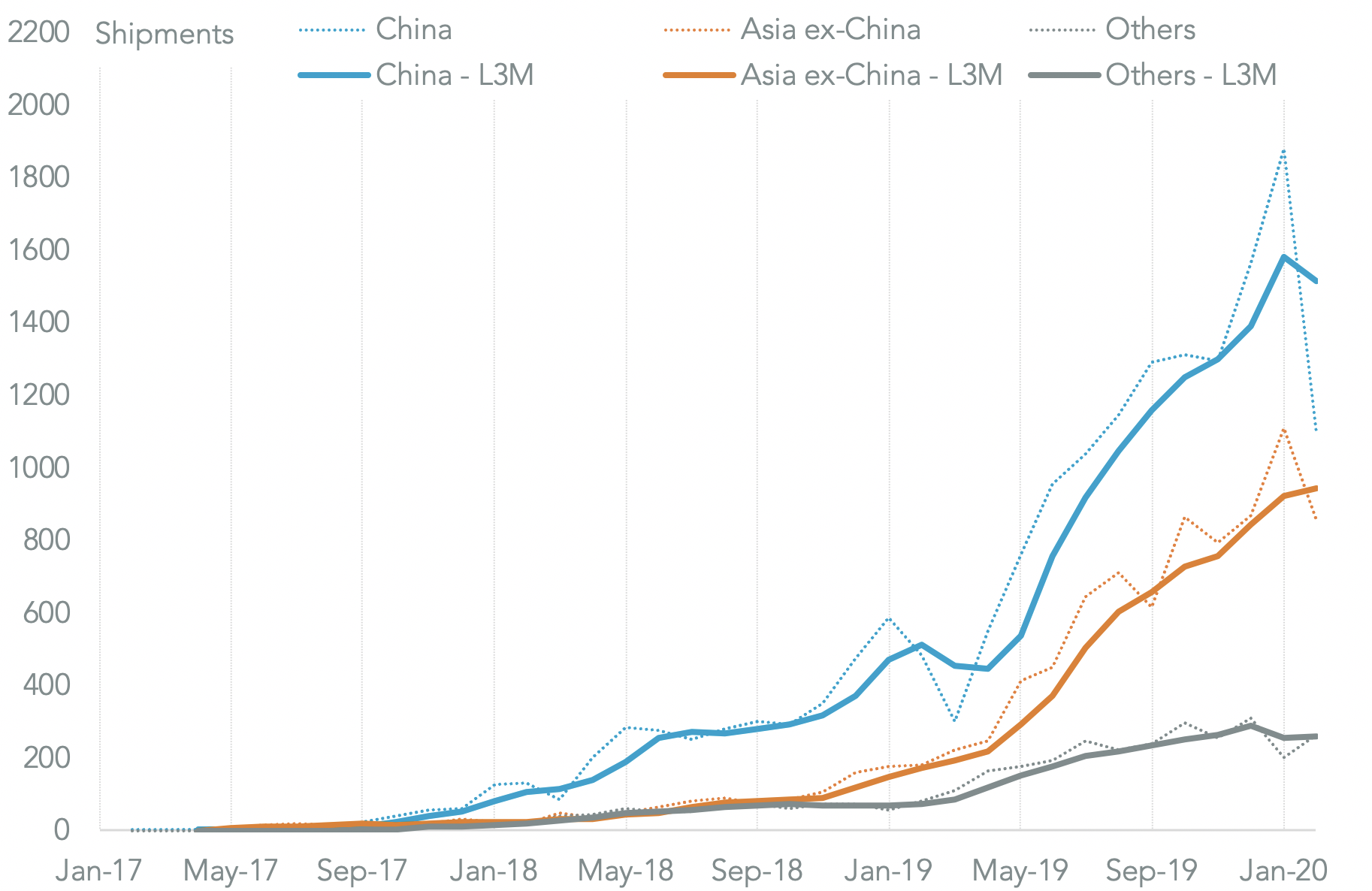
Source: Panjiva
In the meantime there’s likely been a downshift in U.S. imports of medical masks. Precise data is difficult to determine given the variety of tariff lines and descriptions covering the product category. Panjiva’s approximation for U.S. seaborne containerized imports of medical masks in the first two weeks of March fell by 24.2% year over year.
That followed a 13.5% decline in February and 3.1% slip in January. Shipments from China accounted for 77.4% of the total in 2019, with the normal seasonal peak for imports occurring ahead of the winter flu season in August each year.

Source: Panjiva
